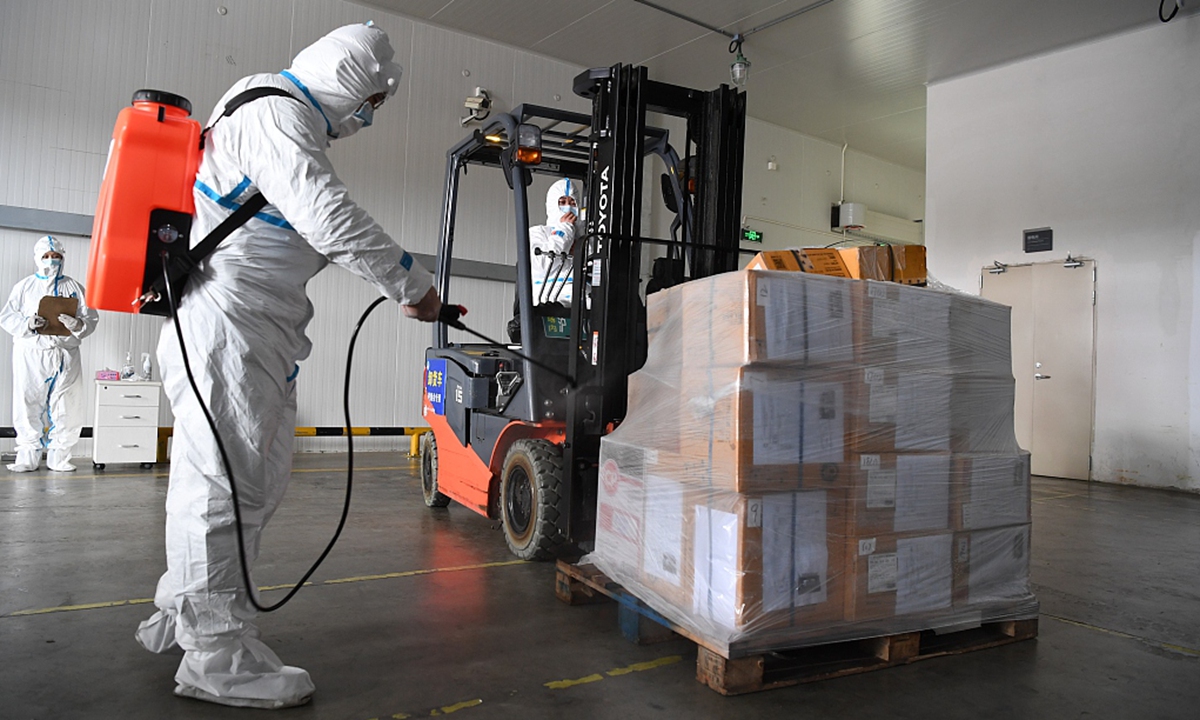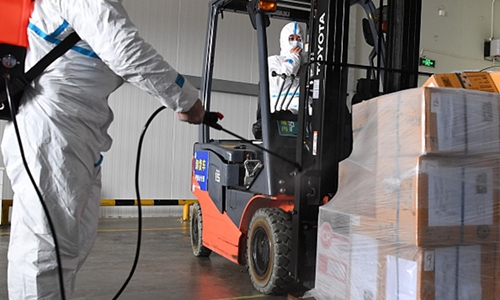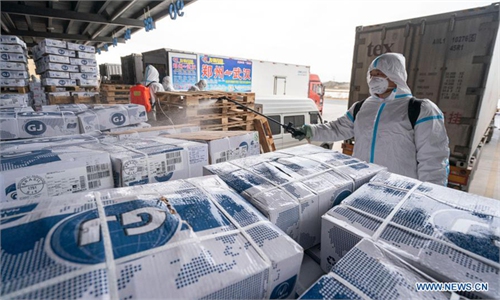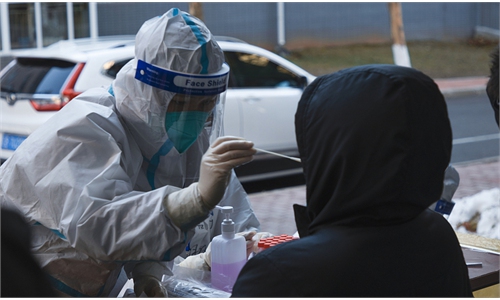Dalian port, China's main cold chain import hub, affected by latest outbreak
Strict rules at Dalian port could push up costs, reduce imports

A staff member sprays disinfectant on the package of imported cold chain food Photo:VCG
As Dalian, a major port city in Northeast China's Liaoning Province, faced its third cold-chain related COVID-19 outbreak in recent days, local cold-chain product importers told the Global Times on Sunday that they are facing strengthened quarantine rules, which could further push up costs for imported products and lead to a decrease of aquatic imports in the near future.
The city recorded 235 new confirmed cases from November 4 to Saturday, characterized by clusters of companies, families and schools. The first identified case in the resurgence was said to be related to a cold-storage facility, which makes it the third cold-chain related outbreak in the city.
A staffer at Dalian Hongkun cold storage told the Global Times on Sunday that the company was asked by local authorities to halt the sale and transportation of all cold-chain food in the city starting last week, including both domestic and imported items.
Operations have not resumed so far, the staffer said.
Dalian is an important cold-chain storage and transportation base in China, with more than 600,000 employees who handle imported cold-chain products. The facility is the biggest cold storage in China, accounting for nearly one-third of the country's cold-chain goods storage capacity, according to a CCTV report.
Nearly 70 percent of imported cold-chain goods enter China through Dalian's port. Industry analysts cautioned that the outbreak in Dalian is likely to affect the circulation of cold-chain food in the domestic market.
Cities across the country have also reportedly stepped up investigation of cold-chain foods from Dalian in recent days. Shopping centers and food companies were asked to suspend sales and conduct nucleic acid tests on these products immediately.
"Inspections of imported cold-chain products had been strict since the epidemic began, but we have not received any notice to suspend any seafood imports so far," Zhang Peng, manager of Dalian Hongwei Seafood Wholesale Market, told the Global Times on Sunday.
Nevertheless, Zhang noted that due to the time-consuming quarantine inspection process and increased transportation fees for running imported cold-chain seafood businesses, many vendors have quit the industry.
A customs declaration agent confirmed that imported cold-chain food can still go through Chinese customs in Dalian. "But inspection for imported cold-chain food is very strict, which is the same as the previous time," said the agent.
Industry players also told the Global Times that the overall impact on the cold-chain industry this time could be temporary, and other import products being handled through the port of Dalian may not be affected since the city already has a mature response system in the face of the resurgence.
A person close to Dalian Port, who asked to remain anonymous, told the Global Times on Sunday that the port's operation was not affected so far, since it had taken "precautions already."
In order to cope with the epidemic control challenges brought by the cold chain, Dalian announced the implementation of the first-stop designated cold storage management system at the end of 2020.
According to the policy, all imported cold-chain foods entering Dalian from ports or other provinces must first go through designated facilities.
The designated cold storage facilities carry out centralized disinfection, testing, and supervision. Only after the process, can all these cold-chain products be shipped to other places.



